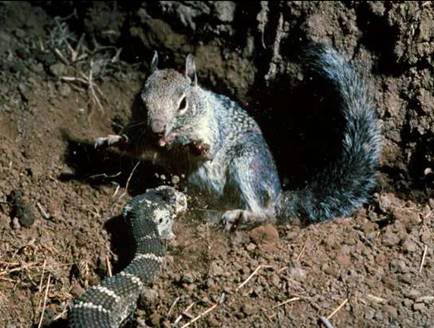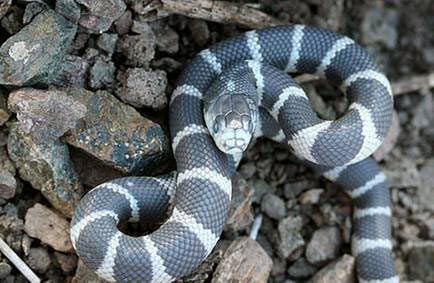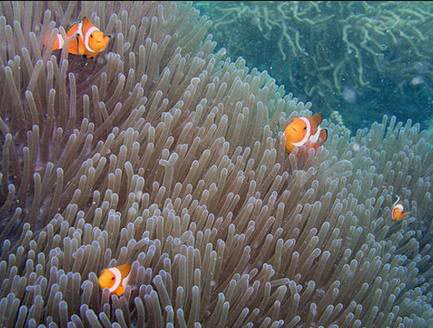Animals that are resistant to poison
Each of the toxin-bearing animals has an alarm, which is immune to their venom.
From clownfish to non-venomous American snakes, bullfrogs or ferrets, these animals have been given a gift from nature to help them preserve their lives. A prey, if there are countermeasures against predators, will be able to change the balance between life and death.
1. Ground squirrel (Ground Squirrels)

If unsuccessful self-defense, this ground squirrel will use its poison-resistant immune system as a last resort against the fearful predator - rattlesnake. Rattlesnake venom is a deadly weapon, causing serious loss of prey to prey.
2. King Snake

Life for rattlesnakes is probably a bit harsh. While struggling to hunt the squirrels that do not die from their venom, they must always watch out behind a 'assassin' or loitering in the wasteland. American snakes have no poison, but they are immune to rattlesnake venom and love to eat rattlesnakes. Since there is no venom to kill the prey, it uses a more violent way: squeezing the prey to death and swallowing whole.
3. Clownfish (Clownfish)

The clownfish are actually not immune to the toxins of anemones, but they still live among hundreds of venom-filled tentacles. All 28 clownfish have a mucous membrane covering their bodies, helping to prevent anemones from releasing poisonous follicles. Scientists are still unclear where and how fish get these 'armor' from them, either they produce it themselves or they get it from an anemone when rubbing themselves on tentacles.
4. bullfrog (Bullfrogs)

The bullfrog is immune only to adulthood. At the tadpole stage, they are very vulnerable to venom of water snakes, so they are good prey. But when they reach adulthood they develop their own resistance to both solid and shallow snakes. Scientists still do not know how they can achieve this ability, but this immunity is very significant for them: because in adulthood they live on land, so they need weapons to deal with predators in this environment.
5. Confidential (Honey Badger)

Bile is very fond of honey, so they often attack honeycombs to steal honey and pupae. Also they eat anything, from baby antelope to cheetah leopard, and poisonous snakes are also an easy dish for them. Zoologists are not sure what happens to the fox's immune system as well as the nervous system (because they are too brave), but in fact they often hunt for cobra for dinner. There is one documented case: a ferret attacked and killed a tiger, but before that the tiger had bitten it. The weasel then remained motionless as if he had died, but after a while he woke up and ate his booty as if nothing had happened.
6. Mongooses (Mongooses)

Like the fox, this animal also likes to eat poisonous snakes. To catch their prey, they rely on their agile agility. Moreover, snake venom has no effect on them, so they are the terrifying enemies of snakes.
7. European porcupine (Hedgehogs)

European porcupines have earned the title of the most adorable snake hunter. They are small, round, and humble. But for snakes, they are known nightmares. The bristling armor of porcupines made the snake completely helpless in the use of venom to attack, and in any struggle, the snakes suffered. Even if I accidentally get a bite, the porcupine is still unharmed thanks to the natural antidote in my blood. In short, in the game 'who will be lunch?' The poisonous snake is absolutely not an opponent of this porcupine.
- Animals that steal the poison of another species
- The village of 'mutants' can eat poisonous drama
- 7 animals are cold resistant under 0 ° C best on the planet
- Inoculate the stool to kill resistant bacteria in the intestine
- The power of poison
- Bacteria resistant to all drugs discovered in the US
- Antibiotics are resistant to ... dolphins
- Frogs, snakes, lizards ... have extremely dangerous venom but why don't they harm themselves?
- Why are some animals still alive even if the blood freezes?
- 15 cute animals but you have to stay away
- The mystery of the poisonous killing killing more than 600 men, only 4 drops is dead without a trace
- Difficult questions: Is the poison at the expiration date no longer toxic or even more dangerous?
 Animal 'suffering' after hibernation
Animal 'suffering' after hibernation Why do goats climb well?
Why do goats climb well? Scientists were surprised to see chimpanzees eating turtles
Scientists were surprised to see chimpanzees eating turtles Giant catfish died deadly due to drought in Thailand
Giant catfish died deadly due to drought in Thailand